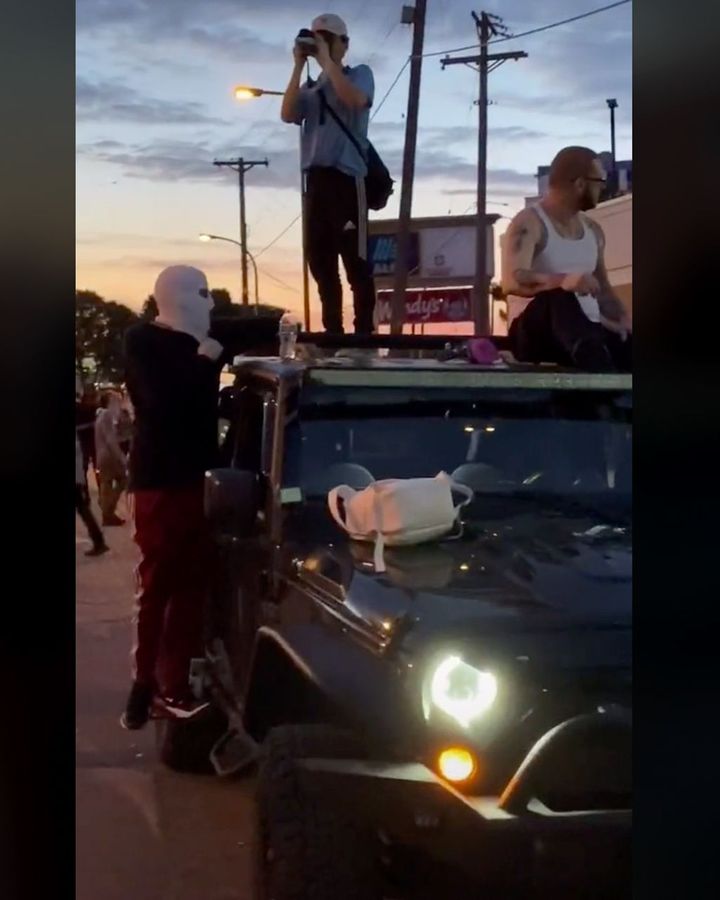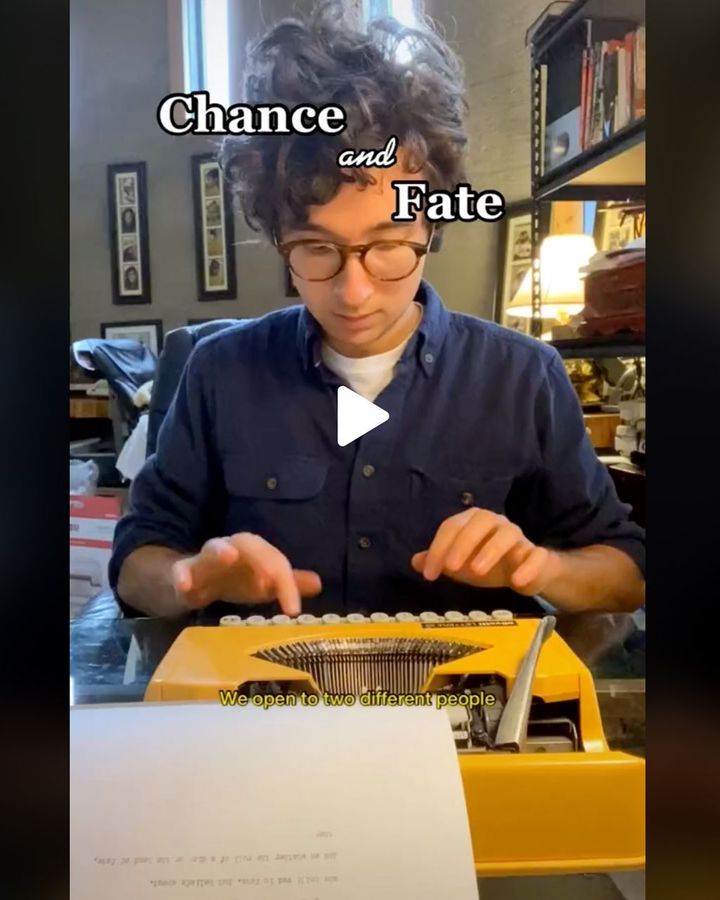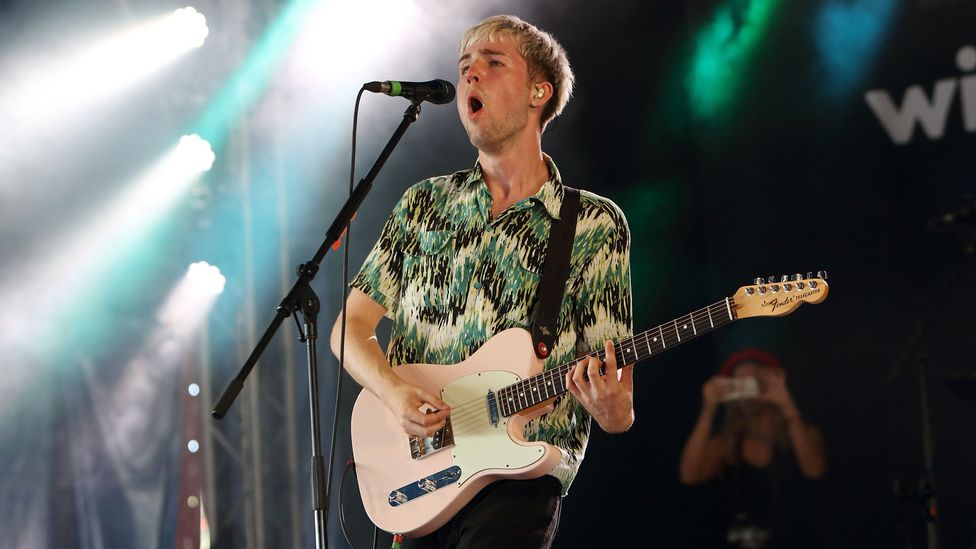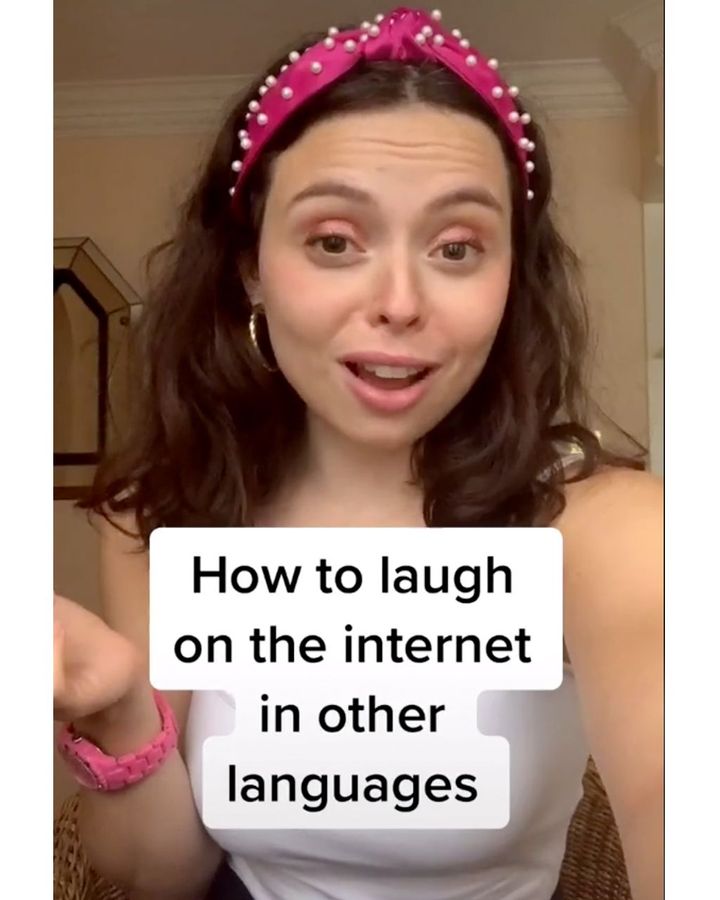With stories about an algorithm that suppressed "ugly and poor creators" and President Donald Trump considering a US ban, TikTok was at once the most beguiling and maligned app of the year. The first major social media app to be run beyond the purview of Silicon Valley, the Chinese-owned platform joined the likes of WhatsApp, Instagram and Twitter in the social media diets of many, despite a multitude of controversies. It popularised short-form video and developed a recommendation algorithm that made it one of the world’s strongest video competitors. But while the grown-ups were busy trying to work out the implications of national security threats from the Chinese Communist Party and a bifurcated US/China internet, teenagers were nurturing the most powerful tool they had ever seen. Now, at the end of 2020, TikTok is the most downloaded app of the year – and it's changed an awful lot more than just how we consume media online.
More like this:
- The street art that expressed the world’s pain
- The Zoom horror that was 2020’s most timely hit
I am technically too old for TikTok, sitting just outside its core 13-24-year-old market. But spiritually, I am just right. Just as being a boomer isn’t necessarily about belonging to an age demographic, but a rather a mindset, there's no age threshold for TikTok; it's more a willingness to hurl yourself into the chaos of the internet. Encountering somebody online that you relate to before following them religiously, DM-ing them and inundating them with supportive comments and queries whenever they post is distinctly Zoomer (Gen Z) culture. Asking questions, supporting worthy initiatives and mass-protesting in an app space is something that comes naturally to these digital natives. Following on from the era of the YouTube wormhole, TikTok’s algorithm recommends you the content you subconsciously crave – but unlike YouTube, these videos are under a minute long. That means that in one session, you could consume reams and reams of engaging videos – familiarising yourself with creators, trends and communities in the process. There is a space for everyone on there – the good, the bad and the plain bizarre.
Having a substantial following on TikTok translates to a strange sort of celebrity in 2020; I only have 140,000 followers, which is pretty small in the grand scheme of the internet, yet I now can't go a fortnight without being recognised in the street. I'd love to be able to say that my scintillating journalism used to deliver me the same effect, but the fact that anyone knows my face is testament to how well TikTok has had people glued to their screens this year. It came from being myself – and that's consistently what other creators say too. The ordinary folk who have become known faces have hastened in a new era of content creator; gone are the pastel pink hyper-edits and Photoshopped goddesses of the Instagram yesteryear. TikTok may have managed to draft in celebrities like chef Gordon Ramsay, but users flood the app to see distinctly ordinary and relatable individuals. If Instagram gave us the IG model, TikTok's given us our talented next-door neighbour, and with the help of its algorithm, here is how these characters changed 2020 – and could well change the years to come.
A new era of digital activism
History will probably come to remember TikTok as having a prominent role in Black Lives Matter, promoting it as a trend on its Discover page and winning the hashtag more than 23 billion views. Kareem Rahma posting scenes in Minneapolis to the tune of Post Malone’s remix of Childish Gambino’s This Is America became a key cultural moment for young users desperate for change in the US and beyond.
Few will remember that in the first few days following George Floyd’s death, the #GeorgeFloyd and #BlackLivesMatter pages had 0 views due to a "technical glitch". A year before, The Intercept had found evidence that non-white, disabled and poor creators were possibly being suppressed on the algorithm by moderators. But for many, the platform has started to feel like a different place recently, with more diverse creators appearing on the For You Page and more initiatives promoting inclusivity.

Kareem Rahma's TikToks of scenes in Minneapolis were a key cultural moment for users around the world (Credit: Kareem Rahma / @kareemrahma)
It also became a prominent arena for anti-Trump protests that actually led to real-life results; TikTokkers have been credited for having at least some role in the poor turnout at President Trump's Tulsa re-election rally in June and they also forced his campaign to reset the Trump app's rating after TikTokkers trolled it with bad reviews. In the summer of this year, I made a film about how algorithmic activism – the way users comment, like, share and rewatch videos to boost it on the TikTok algorithm – has been an important way for locked down social activists to mobilise when they can’t leave the house.
TikTok absurdism has changed internet comedy
The art of the TikTok comedy sketch is unique; you only have one minute for your skit and you have to hook the viewer in in the first few seconds, otherwise they’re just going to scroll straight past it. There are now common TikTok tropes that viewers instantly respond to; don a tea towel on your head for example and you’re instantly a woman. Put on a blonde wig, sunglasses and a baseball cap and you're suddenly a "Karen".
"When it comes to comedy, TikTok essentially kills the punchline," says Baron Ryan, who has more than 700k followers from his TikTok sketches. "That’s not a bad thing, it’s just different." A lot of the comedy on there is absurdist which, though it performs well in mainstream media too, can take on a life of its own on a platform that delights in oddness. "Pacing is quicker now and details are becoming a bigger deal. You leave an Easter egg for half a second in one shot, and the audience will almost always catch it. This is because watching content in your hands, by yourself is an extremely intimate experience TV cannot replace."

Baron Ryan is a comedian who has more than 700k followers from his TikTok sketches (Credit: Baron Ryan / @americanbaron)
For Ryan it isn't just about the quality of your content but your behaviour as an individual. He references @kallmekris, a creator who’s created several loveable return characters including a taxing toddler: "While hilarious in her own right, [she] is incredibly likeable. She's gracious with her fans, she works clean, doesn't roast or criticise anybody with her comedy, and that is why she has over 10 million followers."
He sees TikTok as having created a new comedy genre; a non-punchline-focused trend he calls "existential chuckle". "We are not in the business of belly laughs," he says, "we are in the business of, 'Huh, that's quite funny'." In a world where there often isn’t much to laugh about – and plenty of existential dread – it's of little surprise a Gen Z app has taken to artists like Ryan so readily.
The year meme culture went 3D – for good
We no longer live in a 2D meme world of Pepe the Frog, the boyfriend checking out another woman and that man with the weird crinkly face laughing at things. The realm of visual online artistry now not only demands PhotoShop, but video editing skills. Many argue that Vine did this first, but the caveat here is that Vine died while TikTok, which was the fastest app in the history of social media to reach a billion user downloads, isn’t going anywhere. Creators like Robert Tolppi have sent eerie, bad 3D renderings viral on DeepTok [Deep TikTok], the TikTok community known for promulgating a number of bizarre videos, the comments sections of which users gather in to revel in their internet weirdness. This is the year that the internet got "deepfried": a phrase that refers to the use of deliberate glitches and creepy voice deepening effects that turned TikTok feeds into a sort of Orwellian doomscape. But for fun. Given how much the rest of the world felt like it was turning into an actual Orwellian doomscape, it makes sense that kids would want to create their own one, within their control, and within which they could connect. Many of the deep-fried videos failed to reach virality outside of the app unlike many other TikToks this year, suggesting that the odder niches of meme culture only work when partnered with TikTok’s mysterious algorithm, much like how others only work in certain groups or subreddits.
A new way for independent musicians to go viral
The promotion of trends on TikTok has gone hand in hand with its creation of the audio meme; the mass reproduction of the same sound to all of these magical trends. Sometimes the sounds are from well-known artists, some of whom deliberately court TikTokkers to try and boost marketing on the platform, which is exactly what Drake did with Toosie Slide. But what has been a distinct component of TikTok culture this year has been the virality of unknown singers and artists who've been lifted from obscurity to views and listens in their millions.

Will Joseph Cook recently went viral on TikTok with his song Be Around Me (Credit: Getty Images)
One of the most moving examples of this came from Lyn Lapid, who made a TikTok about a disappointing experience she had with a producer when she was first trying to get her music out. "He said come here sweetie, I can make you a star/I just want to see you flourish and I know you'll make it far/What she couldn’t see is that he was in it for the money" she sings as she taps her table percussively. It's been seen a mind-boggling 50 million times and now the 18-year-old has released it as a single – presumably free from said money-grabbing producer. A little like Birdy, who first got big on YouTube, the music that goes really viral from the lesser-known artists always tends to be deft, heartfelt and distinctly indie.
"Traditional media doesn’t have the crazy global reach that TikTok creates," says Will Joseph Cook, who went viral on the platform lately with his song Be Around Me. He launched it independently and now enjoys a following of over 200k. "Now I'm finally reaching indie fans in South East Asia that would have a much harder time meeting me otherwise. On a more personal note I feel like it's a space where artists can show their other interests and sense of humour in a really fun way. I've enjoyed that part of it a lot."
Cook caveats that it's not for everyone. "There's quite a bold internet culture on TikTok; you kind of have to be a consumer of the content to be a good creator. It can feel really forced when an artist who doesn't use the app rocks up and tries to force a viral audio."
A new age of collaborative art
TikTokkers have written a musical together based on Pixar's Ratatouille. This is not a joke, and this is also, unfathomably, not ridiculous – it's actually now been screened offline at a theatre event in Broadway. People with proper musical knowledge and training have written chorus numbers and moving solos, and TikTok's product design encourages duets, which has made it a perfect tool to harmonise and co-write music with complete strangers. This is a solo song written for Chef Skinner – I Knew I Smelled A Rat – and this moving montage video shows how many people have sent in dance routines, costume designs, artwork, actors, make up artwork and even a backstage crew in what’s been a truly organic piece of collaborative musical work. In a pandemic where there have been so many initiatives that try to bring together performers on Zoom, the Ratatouille musical sits as something proudly internet-first. I'm sure that brands soon will try to overwhelm TikTok with similar ideas – but until that happens, Remy the rat will remain "the rat of all our dreams".
We all became content creators
YouTube turned many people into content creators through their computers – and now TikTok is turning even more people into content creators via their phones. YouTubers have to shoot with editing for the platform in mind – but TikTokkers whip their phone out often on-the-go or in a spare moment at home, film and edit in app and then instantly upload. This is colour-by-numbers content creation – you’re offered up trends either in the For You Page or the Discover page and you can start making videos straight away. The burden of making it look like a videographer shot it disappears – as does the pressure of having to come up with content ideas.
For so many internet lurkers, the pre-TikTok world was divided between influencers and normies; your Instagram brunch might have had the picture-perfect fried egg and smashed avo, but it was never going to reach the viral counts of a Kardashian. But with an app like TikTok, your funny video has as much chance of going around the world as the next person's, whether they have 0 followers or 100,000. The sheer internet chaos which that can bring isn't always positive, but there is something delightfully meritocratic about it.

Ordinary people – like journalist Sophia Smith-Galer – have as much chance as the next person at going viral (Credit: Sophia Smith-Galer/ @sophiasmithgaler)
The rise of TikTok this year made many of us consider two powerful things; the merits of joyscrolling on the internet to escape from reality but crucially, also, the question of who really controls what we say and see online. Having a Chinese-owned app thrown into the melee of Silicon Valley social media may have prompted a great deal of politicised, anti-Chinese xenophobia, but it also kindled some much-needed awareness amongst internet users about who could have access to their data and who could be prioritising or suppressing the content that they see on their feeds. TikTok has, for now, not been found to be a data danger – and its increasing ubiquity in so many lives has already made it a mainstay. If the algorithm remains as it currently is, 2021 could see an enormous wave of life-altering, mind-changing content coming your way. Self-expression will become synonymous with content creation, favouring those who know how to film themselves. Whether that's a good or bad thing for the world is up for debate – but for those who have long felt ostracised or disenfranchised by the traditional holders of power, the meritocratic video fame of the 2020s will define a new era of David beating Goliath. While platforms like Instagram increasingly become arenas where only the biggest brands with their marketing budgets get any screentime at the expense of newer, smaller talent, TikTokkers with powerful messages – for now – are free to run amok, defiant in their power to take on the algorithm, the internet and the world beyond.
If you would like to comment on this story or anything else you have seen on BBC Culture, head over to our Facebook page or message us on Twitter.
And if you liked this story, sign up for the weekly bbc.com features newsletter, called The Essential List. A handpicked selection of stories from BBC Future, Culture, Worklife and Travel, delivered to your inbox every Friday.
"world" - Google News
December 17, 2020 at 07:33AM
https://ift.tt/3r4p9LK
How TikTok changed the world in 2020 - BBC News
"world" - Google News
https://ift.tt/3d80zBJ
https://ift.tt/2WkdbyX
Bagikan Berita Ini














0 Response to "How TikTok changed the world in 2020 - BBC News"
Post a Comment